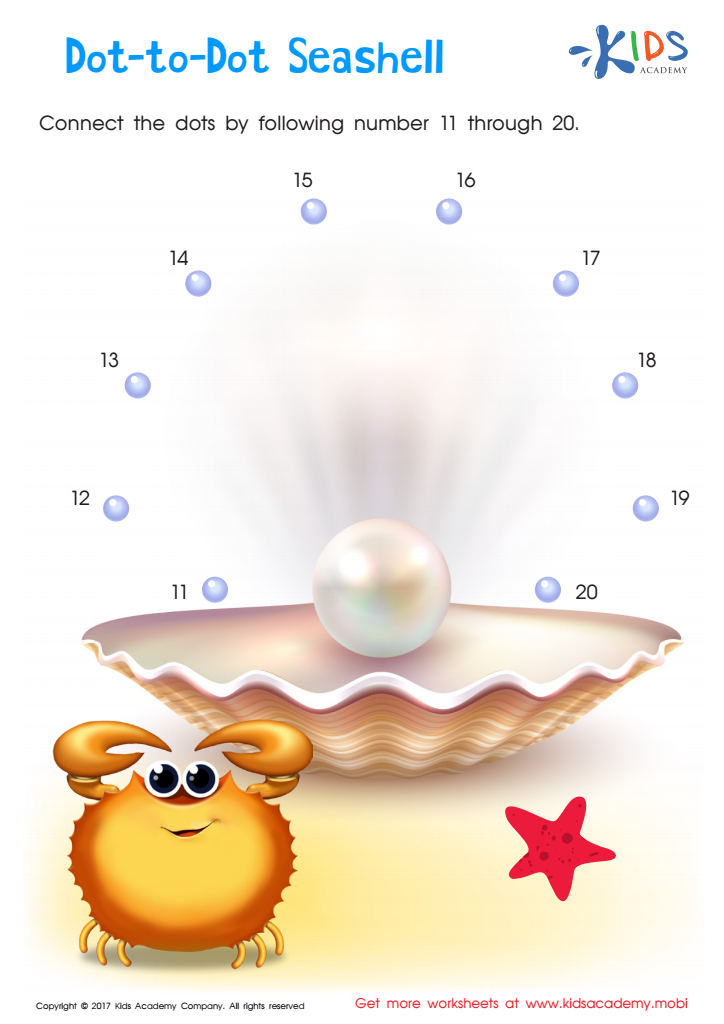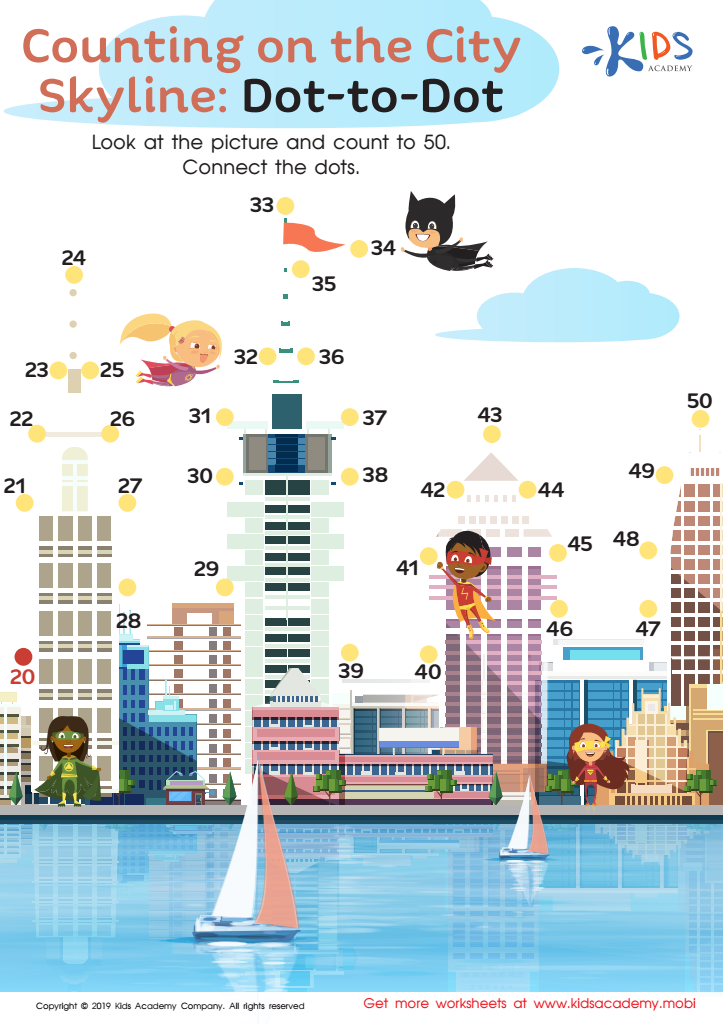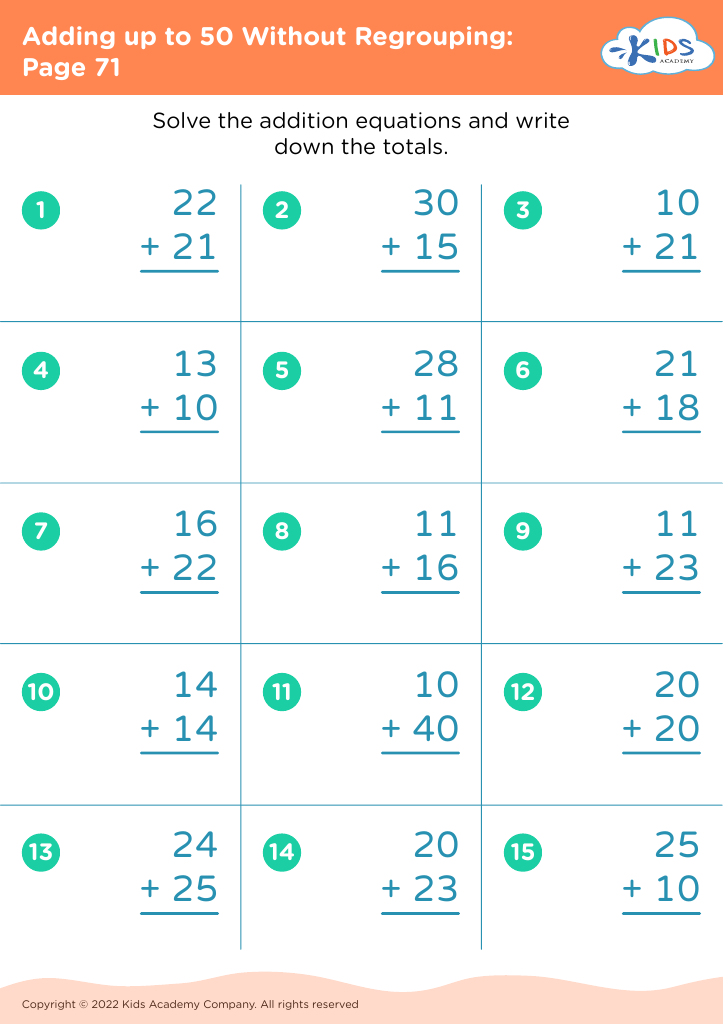Number sequence learning Worksheets for Ages 3-8
3 filtered results
-
From - To
Discover our engaging Number Sequence Learning Worksheets for children aged 3-8! These carefully designed worksheets help young learners master counting, pattern recognition, and number sequencing through fun activities. Each page is filled with colorful illustrations and interactive exercises that capture children's interest while fostering essential math skills. Ideal for preschool and early elementary learners, our resources encourage independent practice and can easily be incorporated into lesson plans or home schooling. Build a strong foundation in numeracy with our user-friendly worksheets, available for instant download. Explore the exciting world of numbers and watch your child's confidence grow as they learn to sequence!


Ordering 11–20: Dot–to–dot Seashell Printable


Counting on the City Skyline: Dot-to-Dot Worksheet
Number sequence learning is a crucial developmental milestone for children aged 3-8, and it deserves the attention of both parents and teachers for several reasons. First, mastering number sequences lays the foundation for essential mathematical skills. Recognizing and understanding numbers in order fosters counting abilities, which are critical for more advanced math topics later, such as addition, subtraction, and even division.
Additionally, number sequences support cognitive development. Engaging with numbers enhances a child's memory, attention, and problem-solving skills. It encourages logical thinking and helps children make connections between numbers, promoting a deeper understanding of quantity and value.
Moreover, early number sequence learning promotes confidence and a positive attitude toward mathematics. When children can recognize and sequence numbers, they are more likely to participate in mathematical activities and feel successful in their abilities.
Finally, strong foundational skills in number sequences contribute to academic success in school. Children who struggle with number concepts may face challenges later on, which can lead to frustration or a dislike of the subject. Thus, investing time in effective number sequence learning can be pivotal for laying a strong academic foundation and fostering a lifelong appreciation for math. Parents and teachers play a pivotal role in helping children navigate this vital learning process.


 Assign to My Students
Assign to My Students
















